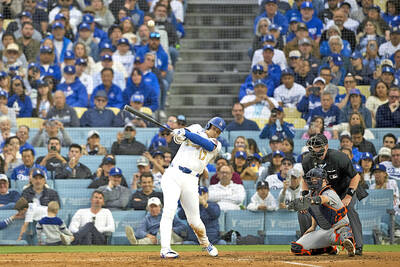One September day in the Yorkshire Dales back in 1967, a handful of female riders set out behind 99 men to compete in a 12-hour time trial organized by Otley Cycling Club.
One of them happened to be Beryl Burton, who many still regard as Britain’s greatest female cyclist, and what transpired throughout that long day helped explode the myth that women lacked the aerobic endurance to challenge men.
Picking off male riders as if she was shelling peas, the relentless 30-year-old clocked up 277.25 miles (446.2km) — not just setting a British women’s record that lasted 50 years, but a men’s one, too.
With two hours remaining, Burton, whose husband, Charlie, spent the day delivering snacks, including a nip of brandy from his support vehicle, caught and passed leading male rider Mike McNamara (who had started two minutes ahead of her).
In one of British sport’s best-loved anecdotes, Beryl Burton is reputed to have glanced across at the struggling McNamara, who incidentally broke the men’s record by completing 276.52 miles, and offered a consolatory Liquorice Allsort.
It was not the first time Beryl Burton, born near Leeds on May 12, 1937, humbled the men.
A year earlier she won the British 100 miles championships in a time that was 38 seconds quicker than the men’s champion from a week earlier on exactly the same course.
In a TV documentary in 1986, one young male rider said: “You only ever see one view of her, and that’s a rear view. She goes by.”
Beryl Burton was introduced to cycling by Charlie Burton, who she married in 1955.
“She was handy, but not that competent, slowly she got better,” he said of her early days on two wheels.
In 1957, she was second in the national 100 miles time trial championships — the first medal in a collection that eventually could have filled a small house.
From the age of 19 to 39 she won 96 national titles, the women’s road world title in 1960 and 1967, and the world individual pursuit track title in 1959, 1960, 1962, 1963 and 1966.
In 1963 she became the first woman to break the hour barrier for the 25 miles time trial.
Beryl Burton won Britain’s best all-rounder time trial competition (25, 50 and 100 miles) 25 years in succession.
Never one to court publicity, the lack of attention paid to women’s cycling at the time still grated.
“It might as well have been the ladies’ darts final down at the local as far as Britain was concerned,” she said after winning the world title in Leipzig, East Germany, in 1960.
Sadly for Beryl Burton, women’s cycling did not enter the Olympics until 1984 and it was another decade before a women’s time trial was included in the world championships.
Who knows how much else the humble housewife from Yorkshire, who never received a penny in sponsorship, would have achieved?
British Cycling president Bob Howden said Beryl Burton’s record of beating men could qualify her as the world’s greatest athlete.
Growing up nearby in Wakefield, he competed against her and said she was the reason he entered the sport.
“I was a spotty 13-year-old and was riding home from football one day and got caught by Beryl coming home, complete with saddlebag and everything,” Howden said. “I instantly recognized her as she was world champion. I couldn’t resist jumping past her, but she just clawed me back and left me. We carried on like that for a few miles and eventually she said: ‘If you think you’re that bloody good join a cycling club.’ And I did. That’s why I am where I am now I guess.”
Beryl Burton’s childhood was beset by ill health and she spent nine months in hospital after a bout of rheumatic fever aged 11. Years spent picking rhubarb in Britain’s so-called “Rhubarb Triangle” helped build her legendary endurance.
Beryl Burton passed on her love of cycling to her daughter, Denise, and they even raced against each other.
Nothing perhaps illustrates her fierce competitiveness than the 1976 national road championships when Denise, then 20, beat her mom, who could not bring herself to congratulate her.
Beryl Burton rode a bike to the end.
On May 5, 1996, while out on her bike delivering invites for her 59th birthday, she suffered a heart attack and died.

Shohei Ohtani and Clayton Kershaw on Friday joined their Los Angeles Dodgers teammates in sticking their fists out to show off their glittering World Series rings at a ceremony. “There’s just a lot of excitement, probably more than I can ever recall with the Dodger fan base and our players,” manager Dave Roberts said before Los Angeles rallied to beat the Detroit Tigers 8-5 in 10 innings. “What a way to cap off the first two days of celebrations,” Roberts said afterward. “By far the best opening week I’ve ever experienced. I just couldn’t have scripted it any better.” A choir in the

After fleeing Sudan when civil war erupted, Al-Hilal captain Mohamed Abdelrahman and his teammates have defied the odds to reach the CAF Champions League quarter-finals. They are today to face title-holders Al-Ahly of Egypt in Cairo, with the return match in the Mauritanian capital, Nouakchott, on Tuesday next week. Al-Hilal and biggest domestic rivals Al-Merrikh relocated to Mauritania after a power struggle broke out in April 2023 between the Sudanese army and a paramilitary force. The civil war has claimed tens of thousands of lives and displaced more than 12 million people, according to the UN. The Democratic Republic of the Congo-born Al-Hilal

The famously raucous Hong Kong Sevens are to start today in a big test for a shiny new stadium at the heart of a major US$3.85 billion sports park in the territory. Officials are keeping their fingers crossed that the premier event in Hong Kong’s sporting and social calendar goes off without a hitch at the 50,000-seat Kai Tak Stadium. They hope to entice major European soccer teams to visit in the next few months, with reports in December last year saying that Liverpool were in talks about a pre-season tour. Coldplay are to perform there next month, all part of Hong Kong’s

Shohei Ohtani, Teoscar Hernandez and Tommy Edman on Thursday smashed home runs to give the reigning World Series champions the Los Angeles Dodgers a 5-4 victory over Detroit on the MLB’s opening day in the US. The Dodgers, who won two season-opening games in Tokyo last week, raised their championship banner on a day when 28 clubs launched the season in the US. Dodgers manager Dave Roberts shuffled his batting lineup with all four leadoff hitters finally healthy as Ohtani was followed by Mookie Betts, then Hernandez and Freddie Freeman in the cleanup spot, switching places with Hernandez. “There’s a Teoscar tax to